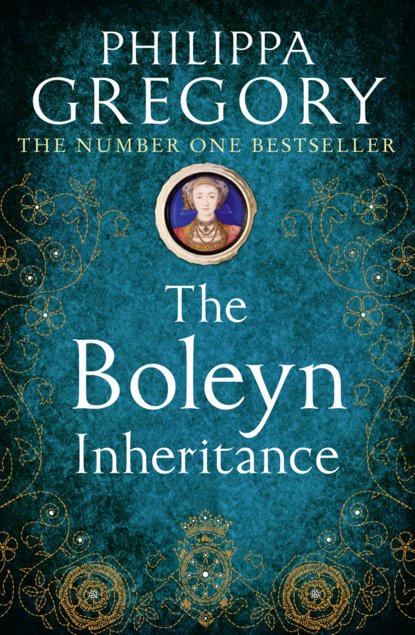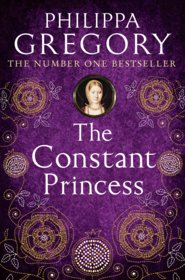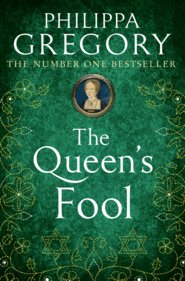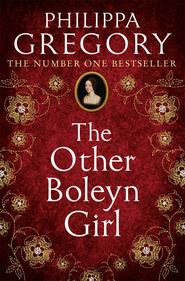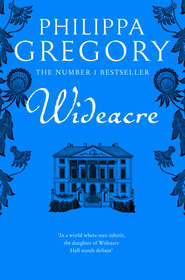По всем вопросам обращайтесь на: info@litportal.ru
(©) 2003-2025.
✖
The Boleyn Inheritance
Автор
Год написания книги
2019
Настройки чтения
Размер шрифта
Высота строк
Поля
Bessie Blount, the king’s old mistress, now married far above her station to Lord Clinton, greets me kindly enough. I have not seen her since the death of her son Henry Fitzroy, who the king made a duke, Duke of Richmond, for nothing more than being a royal bastard, and when I say how sorry I am for her loss, shallow words of politeness, she suddenly grips my hand and looks at me, her face pale and demanding, as if to ask me wordlessly if I know how it was that he died? Will I tell her how he died?
I smile coolly and unwrap her fingers from my wrist. I cannot tell her because truly I don’t know, and if I did know I would not tell her. ‘I am very sorry for the loss of your son,’ I say again.
She will probably never know why he died nor how. But neither will thousands. Thousands of mothers saw their sons march out to protect the shrines, the holy places, the roadside statues, the monasteries and the churches, and thousands of sons never came home again. The king will decide what is faith and what is heresy, it is not for the people to say. In this new and dangerous world it is not even for the church to say. The king will decide who will live and who will die, he has the power of God now. If Bessie really wants to know who killed her son she had better ask the king his father; but she knows Henry too well to do that.
The other women have seen Bessie greet me and they come forwards: Seymours, Percys, Culpeppers, Nevilles. All the great families of the land have forced their daughters into the narrow compass of the queen’s rooms. Some of them know ill of me and some of them suspect worse. I don’t care. I have faced worse than the malice of envious women, and I am related to most of them anyway, and rival to them all. If anyone wants to make trouble for me they had better remember that I am under the protection of my lord duke, and only Thomas Cromwell is more powerful than us.
The one I dread, the one I really don’t want to meet, is Catherine Carey, the daughter of Mary Boleyn, my mean-spirited sister-in-law. Catherine is a child, a girl of fifteen, I should not fear her, but – to tell the truth – her mother is a formidable woman and never a great admirer of mine. My lord duke has won young Catherine a place at court and ordered her mother to send her to the fount of all power, the source of all wealth, and Mary, reluctant Mary, has obeyed. I can imagine how unwillingly she bought the child her gowns and dressed her hair and coached her in her curtsey and her dancing. Mary saw her family rise to the skies on the beauty and wit of her sister and her brother, and then saw their bodies packed in pieces in the little coffins. Anne was beheaded, her body wrapped in a box, her head in a basket. George, my George … I cannot bear to think of it.
Let it be enough to say that Mary blames me for all her grief and loss, blames me for the loss of her brother and sister, and never thinks of her own part in our tragedy. She blames me as if I could have saved them, as if I did not do everything in my power till that very day, the last day, on the scaffold, when in the end there was nothing anybody could do.
And she is wrong to blame me. Mary Norris lost her father Henry on the same day and for the same cause, and she greets me with respect and with a smile. She bears no grudge. She has been properly taught by her mother that the fire of the king’s displeasure can burn up anyone, there is no point in blaming the survivors who got out in time.
Catherine Carey is a maid of fifteen, she will share rooms with other young girls, with my cousin and hers, Katherine Howard, Anne Bassett, Mary Norris, with other ambitious maids who know nothing and hope for everything. I will guide and advise them as a woman who has served queens before. Catherine Carey will not be whispering to her friends of the time that she spent with her Aunt Anne in the Tower, the last-moment agreements, the scaffold-step promises, the reprieve that they swore was coming and yet never came. She will not tell them that we all let Anne go to the block – her saintly mother as guilty as any other. She has been raised as a Carey but she is a Boleyn, a king’s bastard and a Howard through and through; she will know to keep her mouth shut.
In the absence of the new queen we have to settle into the rooms without her. We have to wait. The weather has been bad for her journey and she is making slow progress from Cleves to Calais. They now think that she will not get here in time for a Christmas wedding. If I had been advising her I would have told her to face the danger, any danger, and come by ship. It is a long journey, I know, and the English Sea in winter is a perilous place, but a bride should not be late for her wedding day; and this king does not like to wait for anything. He is not a man to deny.
In truth, he is not the prince that he was. When I was first at court and he was the young husband of a beautiful wife, he was a golden king. They called him the handsomest prince in Christendom and that was not flattery. Mary Boleyn was in love with him, Anne was in love with him, I was in love with him. There was not one girl at court, nor one girl in the country, who could resist him. Then he turned against his wife, Queen Katherine, a good woman, and Anne taught him how to be cruel. Her court, her clever young merciless court, persecuted the queen into stubborn misery and taught the king to dance to our heretic tune. We tricked him into thinking that the queen had lied to him, then we fooled him into thinking that Wolsey had betrayed him. But then his suspicious mind, rootling like a pig, started to run beyond our control. He started to doubt us as well. Cromwell persuaded him that Anne had betrayed him, the Seymours urged him to believe that we were all in a plot. In the end the king lost something greater than a wife, even two wives; he lost his sense of trust. We taught him suspicion, and the golden boyish shine tarnished on the man. Now, surrounded by people who fear him, he has become a bully. He has become a danger, like a bear that has been baited into surly spite. He told the Princess Mary he would have her killed if she defied him, and then declared her a bastard and princess no more. The Princess Elizabeth, our Boleyn princess, my niece, he has declared illegitimate and her governess says that the child is not even properly clothed.
And lastly, this business with Henry Fitzroy, the king’s own son: one day to be legitimised and proclaimed the Prince of Wales, the next day dead of a mystery illness and my own lord told to bury him at midnight? His portraits destroyed, and all mention of him forbidden? What sort of a man is it who can see his son die and be buried without saying a word? What sort of a father can tell his two little girls that they are no children of his? What sort of a man can send his friends and his wife to the gallows and dance when their deaths are reported to him? What kind of a man is this, to whom we have given absolute power over our lives and souls?
And perhaps even worse than all of this: the good priests hanged from their own church beams, the devout men walking to the stake to be burned, their eyes down, their thoughts on heaven, the uprisings in the North and the East, and the king swearing that the rebels could trust him, that he would be advised by them, and then the dreadful betrayal that put the trusting fools on gallows in their thousands around the country, that made my lord Norfolk the butcher of his countrymen. This king has killed thousands, this king goes on killing thousands of his own people. The world outside England says he has run mad and waits for our rebellion. But like frightened dogs in the bear pit we dare do no more than watch him and snarl.
He is merry now, anyway, despite the new queen’s failure to arrive. I have yet to be presented to him but they tell me he will greet me and all her ladies kindly. He is at dinner when I steal into his rooms to see the new queen’s portrait that he keeps in his presence chamber. The room is empty, the portrait is on an easel lit by big square candles. She is a sweet-looking thing, it must be said. She has an honest face, a straight gaze from lovely eyes. I understand at once what he likes in her. She has no allure; there is no sensuality in her face. She does not look flirtatious or dangerous or sinful. She has no polish, she has no sophistication. She looks younger than her twenty-four years, I could even say she looks a little simple to my critical gaze. She will not be a queen as Anne was a queen; that is a certainty. This is not a woman who will turn court and country upside down to dance to a new tune. This is not a woman who will turn men half-mad with desire and demand that they write of love in poetry. And, of course, this is exactly what he wants now – never again to love a woman like Anne.
Anne has spoiled him for a challenge, perhaps forever. She set a fire under his court and in the end everything was burned up. He is like a man whose very eyebrows have been scorched, and I am the woman whose house is ashes. He does not want ever again to marry a desirable mistress. I never again want to smell smoke. He wants a wife at his side who is as steady as an ox at the plough, and then he can seek flirtation and danger and allure elsewhere.
‘A pretty picture,’ a man says behind me and I turn to see the dark hair and long, sallow face of my uncle, Thomas Howard, the Duke of Norfolk, the greatest man in the kingdom after the king himself.
I sweep him a deep curtsey. ‘It is indeed, sir,’ I say.
He nods, his dark eyes steady. ‘Do you think it will prove to be a good likeness?’
‘We’ll know soon enough, my lord.’
‘You can thank me for getting you a post in her household,’ he says casually. ‘It was my doing. I took it as a personal matter.’
‘I do thank you very much. I am in your debt for my life itself. You know, you have only ever to command me.’
He nods. He has never shown me kindness, except the once, one great favour: pulling me from the fire that burned down the court. He is a gruff man of few words. They say he only really loved one woman and that was Katherine of Aragon, and he watched her thrust down to poverty, neglect and death, in order to put his own niece in her place. So his affections are of little value, anyway.
‘You will tell me how things go on in her rooms,’ he says, nodding at the portrait. ‘As you always have done.’ He holds out his arm to me, he is giving me the honour of leading me into dinner. I curtsey again, he likes a show of deference, and I put my hand lightly on his arm. ‘I shall want to know if she pleases the king, when she conceives, who she sees, how she behaves, and if she brings in any Lutheran preachers. That sort of thing. You know.’
I know. We walk to the door together.
‘I expect her to try to lead him in the matter of religion,’ he says. ‘We can’t have that. We can’t have him turning any further to reform; the country won’t tolerate it. You must look at her books and see if she is reading any forbidden writing. And watch her ladies to see if they are spying on us, if they report to Cleves. If any of them express any heresy I want to know at once. You know what you have to do.’
I do. There is not a member of this wide-ranging family who does not know their task. We all work to maintain the power and wealth of the Howards and we stand together.
I can hear the roar of the feasting court from the hall as we walk towards it, serving men with great jugs of wine and platters of meat marching in line to serve the hundreds of people who dine every day with the king. In the gallery above are the people who have come to watch, to see the great monster that is the inner court of the noblest people, a beast with a hundred mouths and a million schemes, and two hundred eyes watching the king as the only source of all wealth, all power, and all favour.
‘You will find him changed,’ the duke says very softly, his mouth to my ear. ‘We all find him hard to please.’
I think of the spoiled boy who could be distracted in a moment with a joke or a bet or a challenge. ‘He was always flighty.’
‘He’s worse than that now,’ my lord says. ‘His temper shifts without warning, he is violent; he will lash out against Cromwell and hit him in the face, he can turn in a moment. He can take a rage that turns him scarlet. Something that pleases him in the morning can anger him at dinner. You should be warned.’
I nod. ‘They serve him on bended knee now.’ I notice the new fashion.
He gives a short laugh. ‘And they call him “Majesty”,’ he says. ‘“Your Grace” was good enough for the Plantaganets themselves; but not enough for this king. He has to be “Majesty” as if he were a god.’
‘People do this?’ I ask curiously. ‘This extreme honour?’
‘You will do it yourself,’ he tells me. ‘Henry will be as a god if he wishes, there is no-one who dares to deny him.’
‘The lords?’ I query, thinking of the pride of the great men of the kingdom who hailed this man’s father as an equal, whose loyalty gave him his throne.
‘You will see,’ my lord says grimly. ‘They have changed the laws of treason so that even to think of opposition is a capital offence. Nobody dares argue against him, there would be the knock on the door at midnight and a trip to the Tower for questioning and your wife a widow without even a trial.’
I look to the high table where the king is seated, a massive spreading bulk on his throne. He is cramming food into his mouth as we watch him, both hands up to his face, he is fatter than any man I have ever seen in my life before, his shoulders gross, his neck like an ox, his features dissolving into the moon-shaped vat of his face, fingers like swollen puddings.
‘My God, he has blown up like a monster!’ I exclaim. ‘What has become of him? Is he sick? I would not have known him. God knows he is not the prince he was.’
‘He is a danger,’ my lord says, his voice no more than a breath. ‘To himself in his indulgences, and to others in his temper. Be warned.’
I am shaken more than I show when I go to the table for the queen’s ladies. They make a space for me and greet me by name, many of them calling me cousin. I feel the king’s little piggy eyes on me and I sweep him a deep curtsey before I sit down on my stool. Nobody else pays any attention to the beast that the prince has become, it is like a fairytale and we are all blinded by an enchantment not to see the ruin of the man in this pig of a king.
I settle to my dinner and serve myself from the common platter, the best wine is poured into my cup. I look around the court. This is my home. I have known most of these people for all of my life, and thanks to the duke’s care in marrying all the Howard children to his own advantage, I am related to most of them. Like most of them, I have served one queen after another. Like most of them, I have followed my royal mistress in the fashion of hoods: gable hood, French hood, English hood; and in the fashion of praying: papist, reformist, English Catholic. I have stumbled in Spanish and I have chattered in French, and I have sat in thoughtful silence and sewed shirts for the poor. There is not much about the Queens of England that I have not known, that I have not seen. And soon I shall see the next one and know all about her: her secrets, her hopes, and her faults. I shall watch her and I shall make my reports to my lord duke. And perhaps, even in a court grown fearful under a king who is swelling into a tyrant, even without my husband, and even without Anne, I shall learn to be happy again.
Katherine, Norfolk House, Lambeth, December 1539 (#ulink_8c935fc5-05c5-57c2-9f98-d862fad677c8)
And what shall I get for Christmas? I know I am to have an embroidered purse from my friend Agnes Restwold, a hand-copied page from a prayer book from Mary Lascelles (I’m so thrilled at the prospect of this I can hardly breathe) and two handkerchiefs from my grandmother. So far, so very dull indeed. But my dearest Francis is going to give me a shift of best embroidered linen, and I have woven him, with my own hands, and it has taken me days, an armband of my favourite colours. I am very pleased that he should love me so, and of course I love him too, but he has not bought me a ring as he promised, and he is sticking to his plan to go to Ireland to seek his fortune in the very next month, and then I shall be left all alone, and what is the point of that?
The court is at Greenwich for Christmas, I hoped it would be at Whitehall and then I might at least have gone to see the king eat his dinner. My uncle the duke is there, but he does not summon us; and although my grandmother went to dine she did not take me with her. Sometimes I think that nothing will ever happen for me. Nothing will ever happen at all and I will live and die an old spinster in my grandmother’s service. I shall be fifteen next birthday and clearly no-one has given a single thought to my future. Who ever cares for me? My mother is dead and my father barely remembers my name. It is terribly sad. Mary Lumleigh is to be married next year, they are drawing up the contract now, and she makes much of herself and queens it over me, as though I cared for her and for her pimply betrothed. I should not want such a match if it were offered to me with a fortune attached, and so I told her, and so we have quarrelled and the lace collar she was going to give me for Christmas will be given to someone else, and I do not care about that either.
The queen should be in London by now but she has been so stupidly slow that she is delayed, so all my hopes of her great entry into London and a wonderful wedding have been put off too. It is as if the very fates themselves work to make me unhappy. I am doomed. All I want is a little dancing! Anyone would think that a girl of nearly fifteen, or at any rate fifteen next year, could go dancing once before she dies!
Of course we will have dancing here for Christmas, but that is not what I mean at all. What is the pleasure in dancing when everyone who sees you has seen you every day for a year before? What’s the pleasure in a feast when every boy in the room is as familiar as the tapestries on the walls? Where’s the joy in having a man’s eyes on you when he is your own man, your own husband, and he would come to your bed whether you dance prettily or not? I try a special turn and curtsey that I have been practising and it does me no good at all. Nobody seems to notice except my grandmother, who sees everything, and she calls me out of the line and puts her finger under my chin and says: ‘Child, there is no need to twinkle around like some slut of an Italian. We all watch you anyway.’ By which I am supposed to understand that I should not dance like a lady, like an elegant young lady, with some style; but like a child.
I curtsey and say nothing. There is no point in arguing with my lady grandmother, she has such a temper she can send me from the room in a moment if I so much as open my mouth. I really do think I am very cruelly treated.
‘And what’s this I hear about you and young Master Dereham?’ she suddenly asks. ‘I thought I had warned you once already?’
‘I don’t know what you hear, Grandmother,’ I say cleverly.
Too clever for her, because she raps my hand with her fan.
‘Don’t forget who you are, Katherine Howard,’ she says sharply. ‘When your uncle sends for you to wait on the queen, I take it you will not want to refuse because of some greensick flirtation?’





